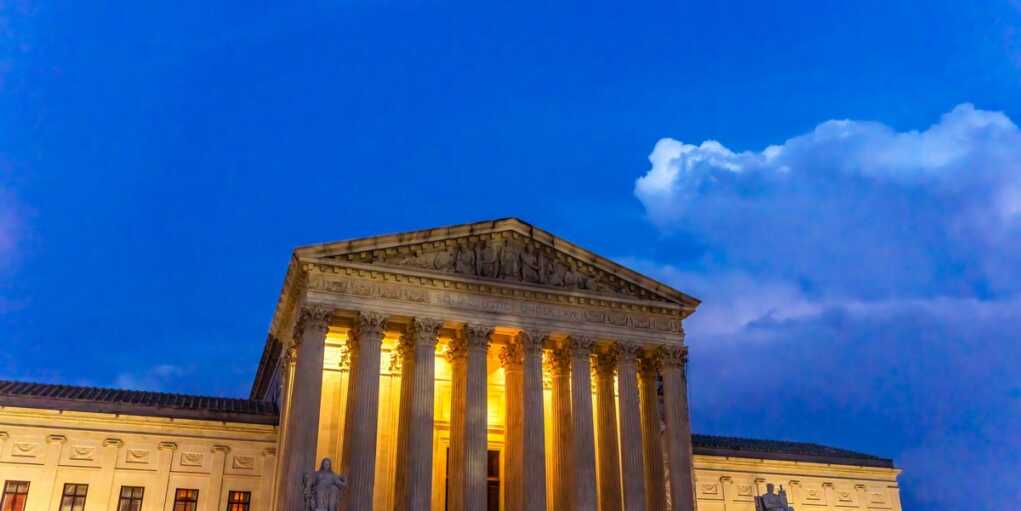Supreme Court Backs Trump — $65M DEI Grants Frozen in Major Win

In a 5-4 emergency decision, the Supreme Court gave the green light Friday for the Trump administration to freeze $65 million in teacher training grants accused of promoting left-wing diversity, equity, and inclusion (DEI) ideology. The ruling halts a lower court’s order forcing the Department of Education to restart payments in eight states.
While not a final decision, the high court’s move signals growing skepticism — even among the justices — about the legal basis for funneling federal taxpayer money into radical activist programs under the guise of education.
“Respondents have represented in this litigation that they have the financial wherewithal to keep their programs running,” the court noted, dismissing claims that the freeze would cause irreparable harm. The justices also made clear that if the plaintiffs ultimately win, they could pursue reimbursement through the appropriate legal channels.
At the heart of the controversy is a Biden-era effort that handed out millions to institutions requiring teacher trainees to undergo DEI programming — often steeped in critical race theory, gender ideology, and identity politics. The Trump administration, through a combination of executive orders and administrative action, has moved to dismantle what it calls “radical and wasteful” programs deeply entrenched in the federal bureaucracy.
Back in January, Trump signed an executive order titled Ending Radical and Wasteful Government DEI Programs and Preferencing, ordering all federal departments and agencies to eliminate DEI offices, equity-related initiatives, and any environmental justice efforts that function more as ideological activism than government necessity.
That order triggered a wave of terminations across federal agencies. The Department of Government Efficiency (DOGE), headed by Elon Musk, responded swiftly — slashing 29 DEI-focused teacher training grants worth $101 million, and terminating an additional 89 contracts valued at nearly $900 million.
“We’re not going to fund discrimination cloaked in buzzwords,” Musk said at the time. “If a program can’t survive without pushing ideology, it shouldn’t survive at all.”
Friday’s Supreme Court ruling offers the first major judicial backing of the administration’s crackdown on DEI — a win for conservative legal activists and a blow to the progressive education lobby, which has increasingly relied on federal money to fund ideological programming in schools and universities.
Critics of the DEI grants argue that they condition access to taxpayer resources on race and identity politics. Many of the frozen grants had language mandating that teacher candidates “center marginalized voices,” use “anti-racist pedagogy,” or demonstrate a “commitment to transformative social justice” — vague standards that often serve as ideological litmus tests.
The Biden administration, which originally approved the grants in 2022, framed them as tools to improve education outcomes and close racial disparities. But watchdogs and whistleblowers raised the alarm about overt political content, hidden compliance mandates, and discriminatory hiring pressures embedded in the funding structures.
The eight states affected by the freeze filed suit earlier this year, arguing that the Trump administration’s move to cut the grants was unlawful and abrupt. Lower courts initially sided with the plaintiffs, but the Supreme Court’s emergency ruling now suspends that decision while litigation continues.
Justice Ketanji Brown Jackson dissented, warning the freeze could “disrupt important educational initiatives.” But the majority saw through the emotional appeals, emphasizing that no school or program would be forced to shut down, especially since the plaintiffs admitted they had the resources to continue operations.
This ruling comes at a time when DEI programs are facing intense scrutiny nationwide. States like Florida, Texas, and Utah have already passed legislation restricting race- and gender-based hiring or training requirements in higher education. Now, with support from the judiciary and the executive branch, the fight is moving to the federal level.
Ultimately, the court’s decision may serve as a broader signal: the era of taxpayer-funded ideological activism in public institutions is ending. And it’s clear the Trump administration is determined to slam the brakes on the DEI train — whether the left likes it or not.

